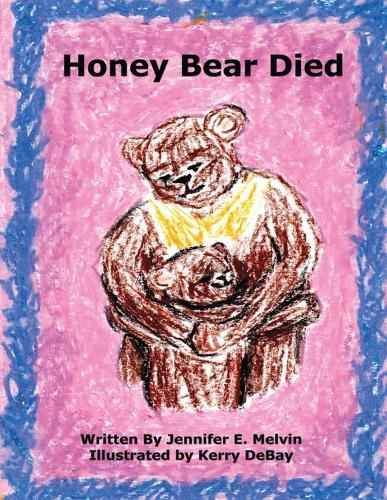Readings Newsletter
Become a Readings Member to make your shopping experience even easier.
Sign in or sign up for free!
You’re not far away from qualifying for FREE standard shipping within Australia
You’ve qualified for FREE standard shipping within Australia
The cart is loading…






This title is printed to order. This book may have been self-published. If so, we cannot guarantee the quality of the content. In the main most books will have gone through the editing process however some may not. We therefore suggest that you be aware of this before ordering this book. If in doubt check either the author or publisher’s details as we are unable to accept any returns unless they are faulty. Please contact us if you have any questions.
Death is a difficult concept to understand at any age, especially for children. Even more difficult is finding the right words to say to a child in order to meet their developmental needs. Jennifer Melvin has had years of experience through her work with bereaved children and adults developing and fine-tuning the language necessary for this kind of conversation. Honey Bear Died is just the right resource for parents and professionals, for when they are at a loss for words.
First published in 2011, this edition is updated with a new binding but the same powerful story. This unique book offers the exact, safe, and supportive words to use when telling a 3-5-year-old child a loved one has died. Honey Bear Died maintains the language and repetition that a preschooler demands while also using terms specific for this age and developmental comprehension to eliminate any confusion, misconceptions or fears.
Honey Bear Died is written to explain what dead means by simply reading the entire story word-for-word without having to adjust or modify it. It also uses a unique concept of having words in red which can be changed to fit the child’s situation. The end result allows the reader to safely and supportively tell the child in an understandable way that someone has died.
Honey Bear Died is exclusive in providing for this overlooked age group by being the first to introduce this concept in a simple way to support 3-5 year olds.
$9.00 standard shipping within Australia
FREE standard shipping within Australia for orders over $100.00
Express & International shipping calculated at checkout
This title is printed to order. This book may have been self-published. If so, we cannot guarantee the quality of the content. In the main most books will have gone through the editing process however some may not. We therefore suggest that you be aware of this before ordering this book. If in doubt check either the author or publisher’s details as we are unable to accept any returns unless they are faulty. Please contact us if you have any questions.
Death is a difficult concept to understand at any age, especially for children. Even more difficult is finding the right words to say to a child in order to meet their developmental needs. Jennifer Melvin has had years of experience through her work with bereaved children and adults developing and fine-tuning the language necessary for this kind of conversation. Honey Bear Died is just the right resource for parents and professionals, for when they are at a loss for words.
First published in 2011, this edition is updated with a new binding but the same powerful story. This unique book offers the exact, safe, and supportive words to use when telling a 3-5-year-old child a loved one has died. Honey Bear Died maintains the language and repetition that a preschooler demands while also using terms specific for this age and developmental comprehension to eliminate any confusion, misconceptions or fears.
Honey Bear Died is written to explain what dead means by simply reading the entire story word-for-word without having to adjust or modify it. It also uses a unique concept of having words in red which can be changed to fit the child’s situation. The end result allows the reader to safely and supportively tell the child in an understandable way that someone has died.
Honey Bear Died is exclusive in providing for this overlooked age group by being the first to introduce this concept in a simple way to support 3-5 year olds.